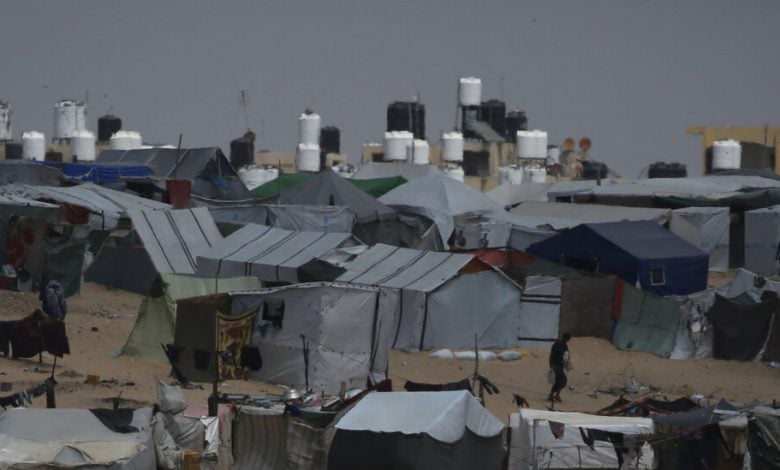Monday Briefing


Displaced Palestinians in a camp in Rafah, in southern Gaza, on Sunday.Credit…Agence France-Presse — Getty Images
Israel wrestled with invading Rafah as negotiators sought a cease-fire
International diplomats converged yesterday on the Middle East to press for a cease-fire between Israel and Hamas as Israel wrestled with whether to begin a ground invasion of Rafah in southern Gaza, according to Israeli analysts and officials. The officials said that they were open to holding off on an invasion if it meant that Israeli hostages taken during the Oct. 7 attacks would be released.
Benny Gantz, a member of Israel’s war cabinet, said that freeing the estimated 100 or so remaining hostages “is urgent and much more important” than entering Rafah.
Pressure on Israel to stop the fighting seemed to be growing. President Biden warned Israel’s prime minister, Benjamin Netanyahu, against invading Rafah and pressed for a cease-fire on a call, and officials said they believed that the International Criminal Court was preparing to issue arrest warrants for senior Israeli and Hamas officials on charges related to the conflict.
More Gaza news:
-
Rebuilding Gaza: International development agencies, Middle East business interests and urban planners have a blueprint for reviving Gaza after the fighting stops.
-
World Central Kitchen: The charity said that it would resume operations in Gaza with local aid workers, nearly a month after the Israeli military killed seven of its workers in targeted drone strikes.
Former Ukrainian prisoners of war show signs of trauma
Many Ukrainian prisoners of war return with physical and psychological wounds after enduring torture from their Russian captors. Once back in Ukraine, they are often improperly treated and returned to duty too early, according to former prisoners, officials and psychologists familiar with individual cases.
